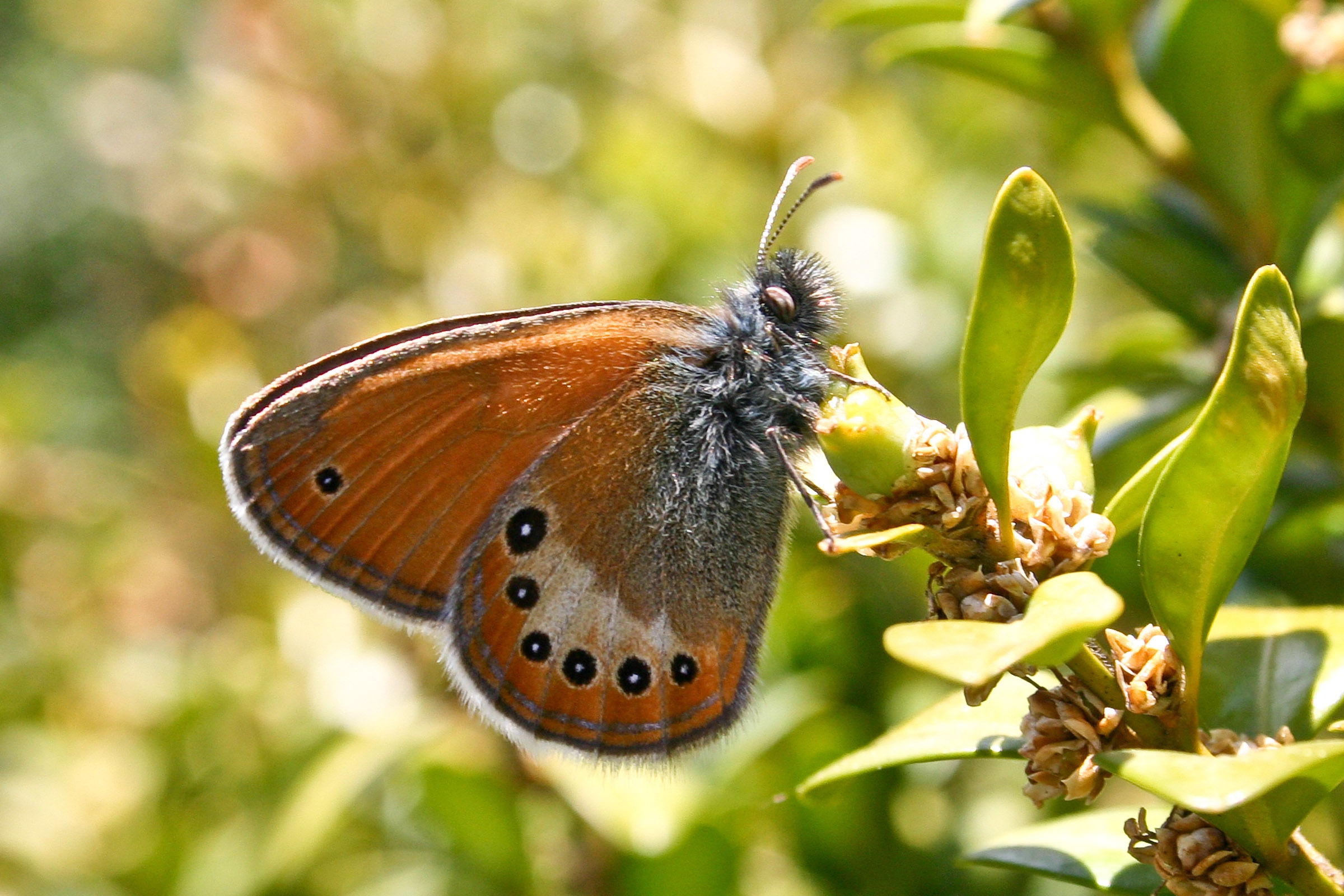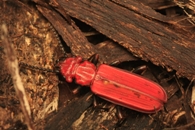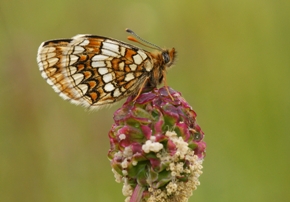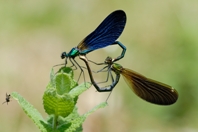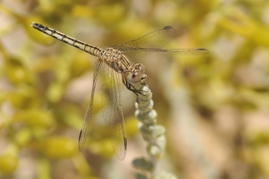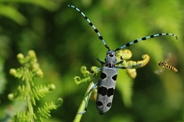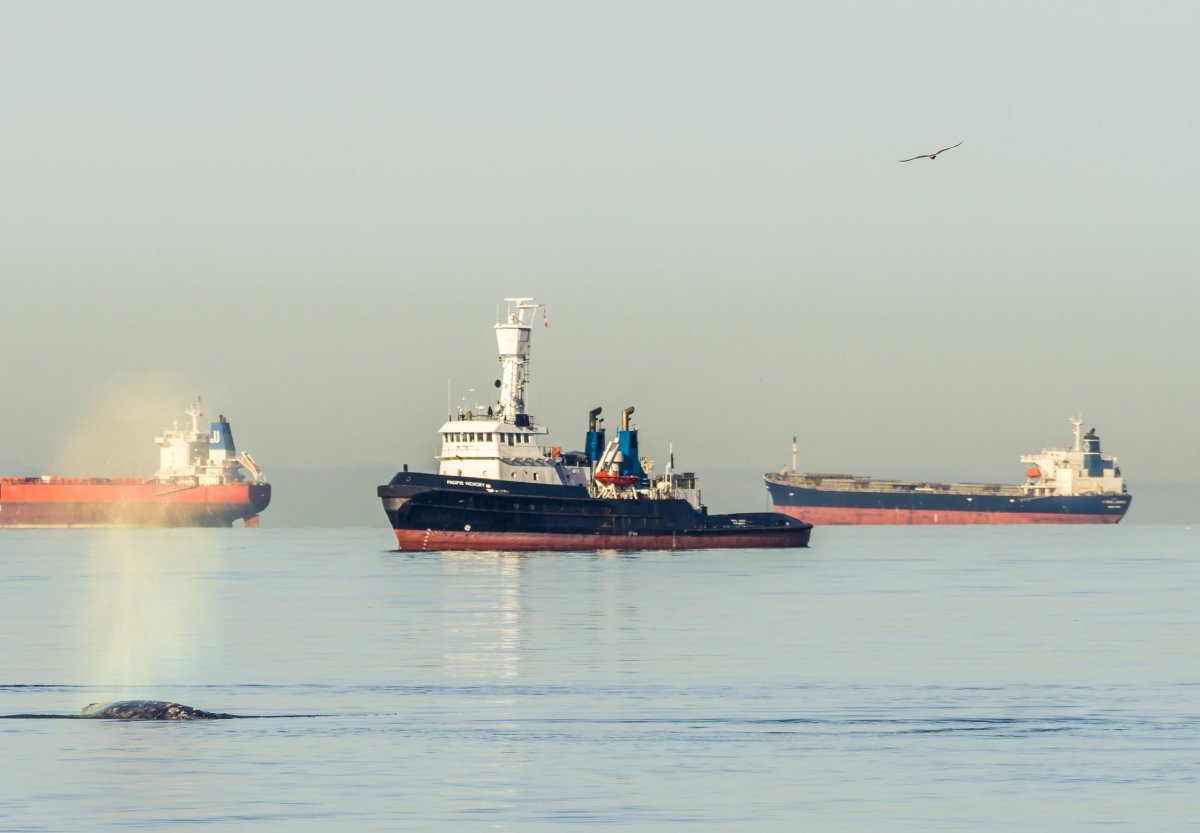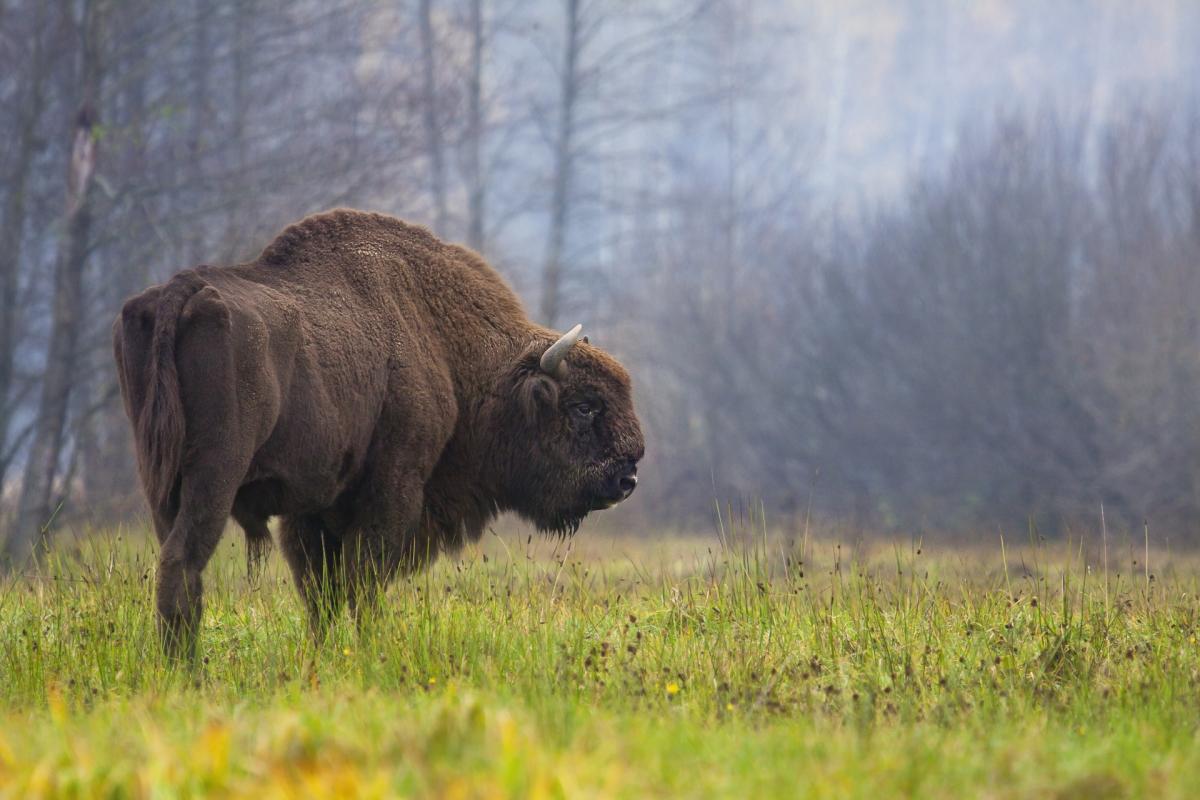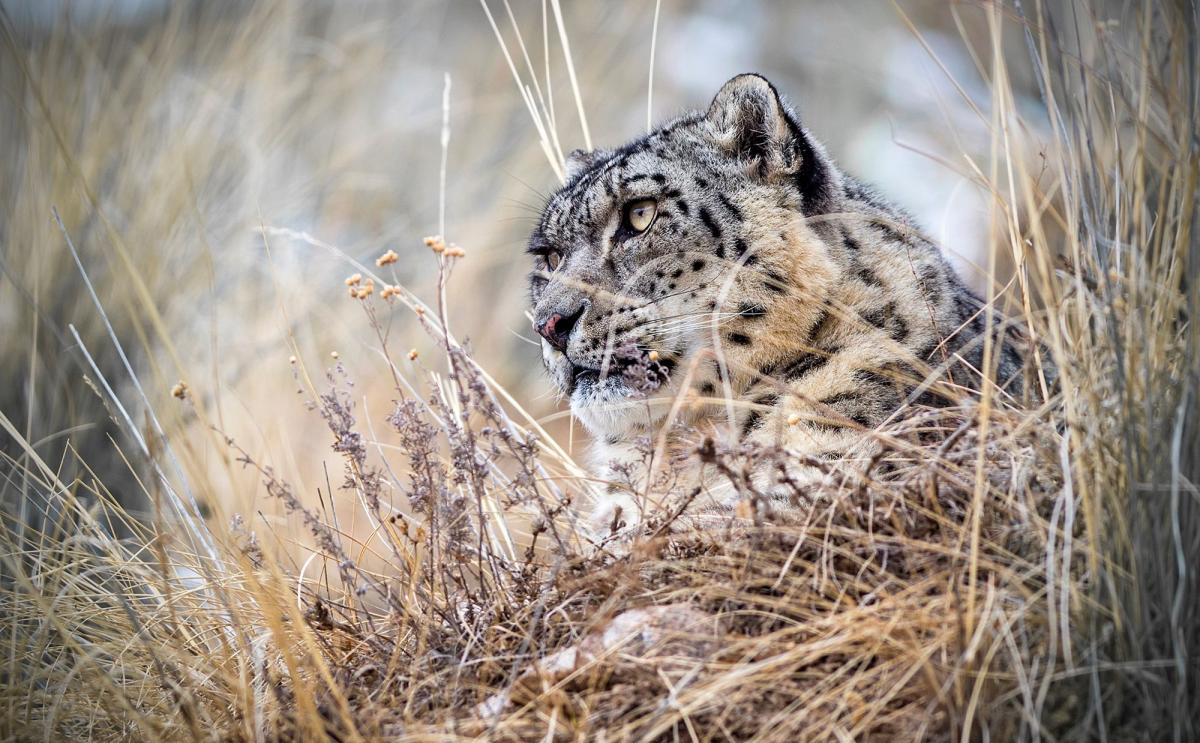Habitat loss blamed for more species decline
Habitat loss is having a serious impact on Europe’s butterflies, beetles and dragonflies. The release of the European Red List, commissioned by the European Commission, shows that nine percent of butterflies, 11 percent of saproxylic beetles (beetles that depend on decaying wood) and 14 percent of dragonflies are threatened with extinction within Europe. Some species are so threatened that they are at risk of global extinction and are now included in the latest update of the IUCN Red List of Threatened Species™.
 Nickerl’s Fritillary (Melitaea aurelia) |
According to new studies commissioned by the European Commission and carried out by IUCN, Butterfly Conservation Europe and the European Invertebrates Survey, nearly a third (31 percent) of Europe’s 435 butterfly species have declining populations and nine percent are already threatened with extinction. For example, the Madeiran Large White Butterfly (Pieris wollastoni) is Critically Endangered (possibly extinct), having not been seen on Madeira for at least 20 years, and the Macedonian Grayling Butterfly (Pseudochazara cingovskii) in the Former Yugoslav Republic of Macedonia is also Critically Endangered because quarrying activities are reducing its habitat. A third of Europe’s butterflies (142 species) are found nowhere else in the world, and 22 of these endemic species (15 percent) are globally threatened.
“Most butterflies at risk are confined to southern Europe; their main threat is habitat loss, most often caused by changes in agricultural practices, either through intensification or abandonment, or to climate change, forest fires and the expansion of tourism,”’ says Annabelle Cuttelod, IUCN Coordinator of the European Red List.
For the first time, saproxylic beetles have been assessed for the IUCN Red List. These beetles are unique because they are highly dependent on decaying wood, particularly in forests, and play an essential role in recycling nutrients. A third of the 431 species assessed are unique to Europe. Almost 11 percent (46 species) are at risk of being lost from the region, and seven percent (29 species) are threatened with extinction at the global level. A further 13 percent (56 species) are listed as Near Threatened within Europe.
The main long-term threats to saproxylic beetles are habitat loss due to logging and the decline in the number of mature trees. The Violet Click Beetle (Limoniscus violaceous) is an Endangered species that typically lives in large tree cavities containing wood mould. It is under threat from changing woodland management practices.
Dragonflies occur almost everywhere in Europe, with the highest numbers in southern France, the foothills of the Alps and parts of the Balkan Peninsula. Fourteen percent of the 130 dragonfly species assessed are at risk; five of these are threatened with global extinction. A further 11 percent are considered Near Threatened within Europe. Like butterflies, most of the threatened species are confined to southern parts of Europe. Increasingly hot and dry summers combined with intensified water extraction for drinking and irrigation are causing the dragonflies’ wetland habitats to dry up.
Three of the most threatened dragonflies of Europe are endemic to the brooks and small rivers of Greece and nearby countries, including Albania, Bulgaria and Turkey. If no action is taken species like the Greek Red Damsel may become extinct during the first half of this century.
"Nature's future is our future, and if it fails, we will fail too,” says EU Environment Commissioner Janez Potočnik. “The ecosystem services nature provides, like the provision of food and water and climate regulation, are the vital backbone of our future prosperity. So when a Red List like this raises the alarm, the implications for our own future are clear. This is a worrying decline."
Photo gallery:
For high-resolution photos please contact our Media team or e-mail: press@iucn.org
Media team:
Leigh Ann Hurt, Species Programme Communications Officer, IUCN, t. +41 22 999 0153, e. leighann.hurt@iucn.org
Pia Drzewinski, Media Relations Officer, IUCN, t. +41 22 999 0313, e. pia.drzewinski@iucn.org
Nicki Chadwick, Media Relations Officer, IUCN, m +974 795 7554, e. nicki.chadwick@iucn.org
Editor’s notes:
• The European Red List is publicly available at:
http://ec.europa.eu/environment/nature/conservation/species/redlist
www.iucnredlist.org/europe
• The European Commission’s page on nature and biodiversity:
http://ec.europa.eu/environment/nature/index_en.htm
• The IUCN Regional Office for Pan-Europe:
www.iucn.org/europe
• Biodiversity – the web of life on which we depend – is in decline around the world. Habitat loss is the greatest threat to beetles, butterflies and dragonflies in Europe. Other threats include changes in the agricultural practices, over-abstraction of water, urbanization and climate change
• Compiled by the IUCN and its partners, the European Red Lists are a framework to classify species according to their extinction risk within Europe. Threatened species are those that are classified as Critically Endangered, Endangered, or Vulnerable.
The European Red List
The European Red List is a review of the conservation status of around 6,000 European species (mammals, reptiles, amphibians, freshwater fishes, butterflies, dragonflies, and selected groups of beetles, molluscs, and vascular plants) according to the IUCN Red List Categories and Criteria and the Guidelines for Applying IUCN Red List Criteria at Regional Levels. It identifies those species that are threatened with extinction at the regional level – in order that appropriate conservation action can be taken to improve their status. The European Red List is primarily funded by the European Commission.
About Butterfly Conservation Europe
Butterfly Conservation Europe is an umbrella organisation aimed at halting the decline of butterflies, moths and their habitats across Europe and preventing further species extinction. It focuses on helping to implement the Convention of Biological Diversity with respect to butterflies, moths and their habitats, and contributing to the EU target of halting biodiversity loss by 2010. Further information: www.bc-europe.eu
About the European Invertebrates Survey – The Netherlands
The European Invertebrate Survey promotes the research on and publication of distributional and ecological information on invertebrates. It houses databases on the distribution of Dutch invertebrates and cooperates with sister organizations in other countries in order to produce monographs on European invertebrates. The organization promotes the conservation of invertebrates and their habitats by building networks of volunteers and specialist and by disseminating information. The European Invertebrates Survey – The Netherlands is a non-governmental organization registered in the Netherlands. Much of the information is made available through the Dutch Species Register (www.nederlandsesoorten.nl), www.ortheur.org and www.naturalis.nl/eis.
About the IUCN Red List of Threatened Species™
The IUCN Red List of Threatened Species™ (or the IUCN Red List) is the world’s most comprehensive information source on the global conservation status of plant and animal species. It is based on an objective system for assessing the risk of extinction of a species should no conservation action be taken. Species are assigned to one of eight categories of threat based on whether they meet criteria linked to population trend, population size and structure and geographic range. Species listed as Critically Endangered, Endangered or Vulnerable are collectively described as ‘Threatened’.
The IUCN Red List is not just a register of names and associated threat categories. It is a rich compendium of information on the threats to the species, their ecological requirements, where they live, and information on conservation actions that can be used to reduce or prevent extinctions.
www.iucnredlist.org
The IUCN Red List of Threatened Species™ is a joint effort between IUCN and its Species Survival Commission, working with its Red List partners BirdLife International, Conservation International’s Center for Applied Biodiversity Science, NatureServe, and the Zoological Society of London.
About the IUCN Species Survival Commission and Species Programme
The Species Survival Commission (SSC) is the largest of IUCN’s six volunteer commissions with a global membership of 7,500 experts. SSC advises IUCN and its members on the wide range of technical and scientific aspects of species conservation and is dedicated to securing a future for biodiversity. SSC has significant input into the international agreements dealing with biodiversity conservation. www.iucn.org/ssc.
The IUCN Species Programme supports the activities of the IUCN Species Survival Commission and individual Specialist Groups, as well as implementing global species conservation initiatives. It is an integral part of the IUCN Secretariat and is managed from IUCN’s international headquarters in Gland, Switzerland. The Species Programme includes a number of technical units covering Species Trade and Use, the Red List Unit, Freshwater Biodiversity Unit, (all located in Cambridge, UK), and the Global Biodiversity Assessment Unit (located in Washington DC, USA).
About BirdLife International
BirdLife International, an IUCN Member, is a global partnership of conservation organizations that strives to conserve birds, their habitats and global biodiversity, working with people towards sustainability in the use of natural resources. Its partners operate in one hundred countries and territories worldwide. For more information about BirdLife International visit www.birdlife.org.
About Conservation International (CI)
Conservation International (CI), an IUCN Member, applies innovations in science, economics, policy and community participation to protect the Earth's richest regions of plant and animal diversity in the biodiversity hotspots, high-biodiversity wilderness areas and key marine ecosystems. With headquarters in the Washington, D.C. metropolitan area, CI works in more than 40 countries on four continents. For more information about CI, visit www.conservation.org.
About NatureServe
NatureServe, an IUCN Member, is a nonprofit conservation organization dedicated to providing the scientific basis for effective conservation action. Through its network of 82 natural heritage programs and conservation data centers comprised of conservation scientists and resource and information managers in 23 countries, NatureServe provides a unique body of on-the-ground biodiversity data, tools, and expertise about at-risk plants, animals, and ecosystems in the United States, Canada, Latin America, and the Caribbean. For more information, visit www.natureserve.org.
About the Zoological Society of London (ZSL)
Founded in 1826, the Zoological Society of London (ZSL), an IUCN Member, is an international scientific, conservation and educational charity: our key role is the conservation of animals and their habitats. ZSL runs ZSL London Zoo and ZSL Whipsnade Zoo, carries out scientific research in the Institute of Zoology and is actively involved in field conservation in over thirty countries worldwide. www.zsl.org
